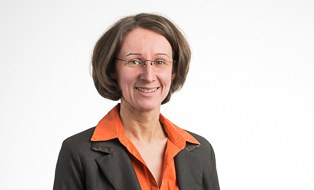Project funding
Table of contents
Are you planning an international research project? On this website, you will find an overview of the most important funding opportunities for internationalization offered by TU Dresden, the European Union and external funding agencies.
1. TUD Project Funding for Internationalization
The Internationalization Funding Program strengthens international cooperations so that far-reaching, research-intensive collaborations with an impact on studies, teaching and transfer can arise. The program comprises two funding lines:
- Flexible Funding Program Internationalization
- Funding of cooperations with strategic partners (TU Delft, science region Wroclaw, science region Prague)
Funding is possible for projects that fall into the following categories:
-
Mobility and short stays between TU Dresden and the international partner
-
(Structured) exchange of doctoral candidates and of academic and non-academic staff
-
Events (conferences, summer schools, workshops)
-
Preparing and working on joint publications
-
Joint application for third-party funding for research projects with international partners
-
Development and establishment of (digitally supported) study programmes
Eligibility: All employees of TU Dresden are eligible to apply and receive funding.
Application deadline: until the 25th of a current month
transCampus London - Dresden is a research-intensive partnership between King's College London and TUD Dresden University of Technology with joint research projects and exchange programs for scientists and students in medicine and biotechnology, engineering, natural sciences and humanities.
The transCampus funding program aims to strengthen the collaboration between King's College London and TUD Dresden University of Technology and therefore supports initiatives that initiate or expand different forms of cooperation.
Application deadlines: For smaller projects with a maximum funding amount of EUR 3,000, an informal outline can be submitted to the transCampus team at any time.
The Graduate Academy funding program Lab2Lab is supporting the exchange and lively collaboration of early career researchers based on the cooperation of international working groups (AGs).
Eligibility: Professors of TU Dresden together with a professor from the working group abroad and a doctoral candidate as the main contact person within the working group at TU Dresden
Application deadline: March 31 and September 30
2. EU Funding Programs
Information on all relevant EU funding programs can be found on the websites of the European Project Center (EPC).
-
HORIZON EUROPE: Current EU framework program for the promotion of research and innovation
-
ERASMUS+ Key Action 2: Strategic Partnerships, Knowledge Alliances and Capacity-building Projects
-
European Territorial Cooperation (ETC) / INTERREG: Cross-border, transnational and interregional project funding
-
CREATIVE EUROPE: The funding program for Europe's audiovisual industry as well as the cultural and creative industries.
 © TU Dresden
© TU Dresden
Project Man. / EPC Contact SSH
NameMs Ines Schmidt
Horizon Europe (MSCA)
Send encrypted email via the SecureMail portal (for TUD external users only).
Visiting address:
FAL Falkenbrunnen BT-A Würzburger Straße 35
01187 Dresden
To support EU third-party funding activities, TU Dresden has therefore implemented a TU internal incentive system. TUD staff can apply for financial support to share the costs for preparation of applications and project initiation.
Eligible for funding:
-
Travel and Hospitality Expenses: Expenses for network activities in preparation for a specific EU application
-
Personnel expenses for the preparation of a specific project application
-
Individual Activities: Network measures to prepare large consortia, preliminary work, patent research
Eligible: TUD employees, potential project managers
Antragsfristen: Applications can be submitted on an ongoing basis.
Further information: EPC Incentive System
3. External Funding Programs for Internationalization
With the Henriette Herz Scouting Program, the Alexander von Humboldt Foundation is opening up a new approach to the Humboldt Research Fellowship, which allows selected hosts to attract suitable scientific talents from abroad as Humboldt Research Fellows in a direct award procedure.
This way, up to 100 additional research grants are awarded annually. The aim is to win over scientists for cooperation with a research institution in Germany and the Humboldt Network who, for various reasons, do not apply for a scholarship themselves. Thus, new specialist and regional target groups in particular are to be reached and at the same time the proportion of women in the research fellowship program is to be increased.
Eligible: (Junior) professors and (junior) group leaders
Application deadline: Applications can be submitted online at any time, the selection committee meets twice a year (end of May and end of November).
International graduate schools offer the possibility of joint doctoral student training between a group at a German university and a partner group abroad. The research and study programs are developed jointly and carried out under dual supervision. For the doctoral students in the participating groups, a six-month stay abroad with the respective partner is planned.
Further information: DFG.
The Fritz Thyssen Foundation promotes scientific events, in particular smaller nationally and internationally oriented conferences with the aim of enabling the discussion and processing of specific scientific questions as well as the thematically oriented cooperation and networking of scientists in the narrower subject area or between different subject areas.
Thematically, an application is possible in the following funding areas, among others:
Eligible: Doctoral candidates at universities or non-profit research institutions
Application deadline: Applications for funding of scientific events can be submitted to the foundation by February 28 / May 31 / August 31 / November 30.
Together with the DFG (Deutsche Forschungsgemeinschaft/German Research Foundation) and the FMSH (Fondation Maison des sciences de l’homme), Villa Vigoni promotes international scientific cooperation and the establishment of new networks between (young) researchers and experts in the field of Humanities and Social Sciences. For this purpose, two programs with different characteristics have been developed and implemented: a bilateral (Italy-Germany) and a trilateral (Italy-Germany-France) format. The events under these two programs take place at Villa Vigoni after applying for annual calls for proposals.
Proposals for conferences (colloquia; seminars for doctoral students and postdocs; close readings) on current cultural, historical and social topics can be submitted as part of the call for proposals. The unique selling point of this program is the intensive discussion in conversation, which is why the number of participants is limited to 25. The conferences must be related to the mission of Villa Vigoni, strengthen German-Italian relations in the fields of research, education and culture in a European context and promote young researchers.
The Humanities and Social Sciences are linked to culture and language. Language and culture are their subject and their medium. In order to sustainably promote the exchange and network building between humanities and social scientists from Germany, France and Italy and to expressly support the use of German, French and Italian as academic languages, the DFG (Deutsche Forschungsgemeinschaft/German Research Foundation), the FMSH (Fondation Maison des sciences de l'homme) and Villa Vigoni developed the "Trilateral Research Conferences" program, in which multilingualism is a key principle. Applications for funding in this program are welcome from all subjects in the humanities and social sciences.
Each Trilateral Research Conference consists of a series of three events that follow each other on an annual basis. All three meetings take place in the Villa Vigoni. The participants of a research conference consist of a group of at least 12, at most 16 scientists, if possible balanced from the three participating countries.
The aim of the DAAD "Transformation" program is to initiate networks between university partners from the target countries Tunisia, Morocco, Libya, Jordan, Yemen, Lebanon, Iraq, Algeria and Sudan in order to initiate long-term cooperation measures. The acquisition of competences by students, teachers and academics, the integration of new and innovative teaching methods / content into teaching and the initiation of processes in the area of "Good University Governance" are further aims of the program.
Short measures / events such as specialist courses, summer schools, initiation trips, workshops, seminars or conferences in the target countries or the same events in Germany with Arab participants primarily from the main target countries as well as research, teaching and study stays in connection with a short measure can be funded. Funding is provided to students, graduates, doctoral candidates, university lecturers and university staff from Germany and the above-mentioned Arab partner countries.
Eligible: State and state-recognized German universities as well as non-profit and self-researching non-university research institutions based in Germany
The DAAD "Go East" program aims to increase the interest of German students and graduates in studying, researching or doing a traineeship in countries in Eastern and Southeastern Europe as well as in the South Caucasus and Central Asia. The aim of the program is to significantly increase the number of partnerships between German universities and partner universities in the region mentioned. With its two funding lines, the program is intended to contribute to the internationalization of the universities involved.
Both small information events and large bilateral university days (Go East-Eastern Europe days at German universities, line 1) as well as Go East project initiation trips by German professors and / or other university members at one or more universities in countries in the South Caucasus and Central Asia (Armenia, Azerbaijan, Georgia, Kazakhstan, Kyrgyzstan, Tajikistan, Turkmenistan, Uzbekistan) are funded (Line 2).
Eligible: German state and state-recognized universities
Please take note of the supplement concerning the application modalities.
